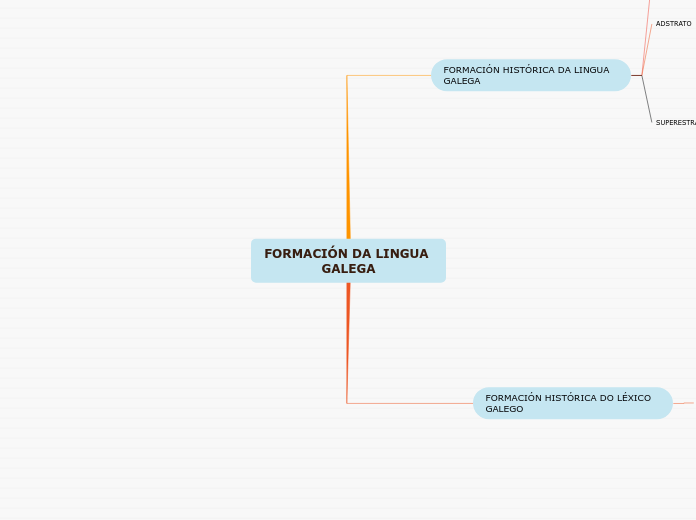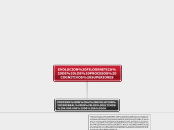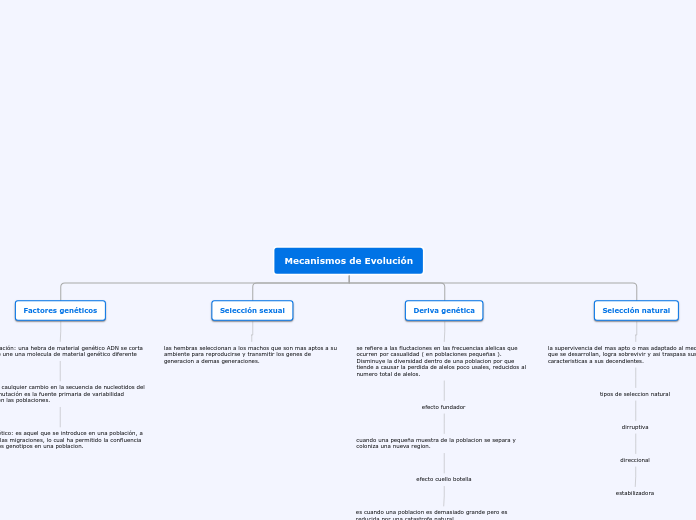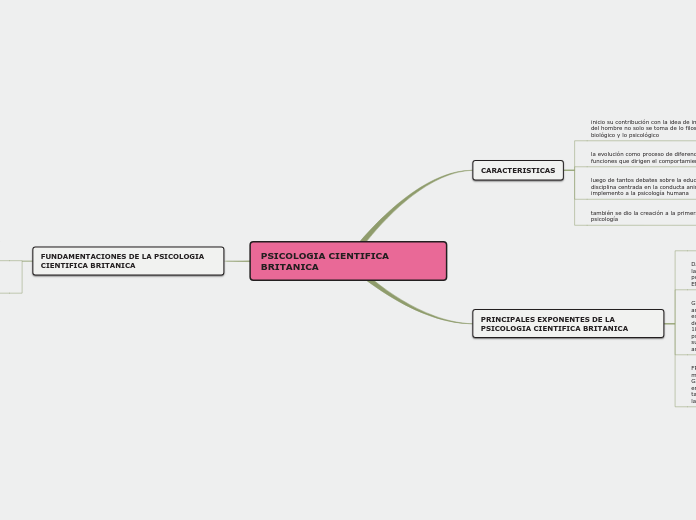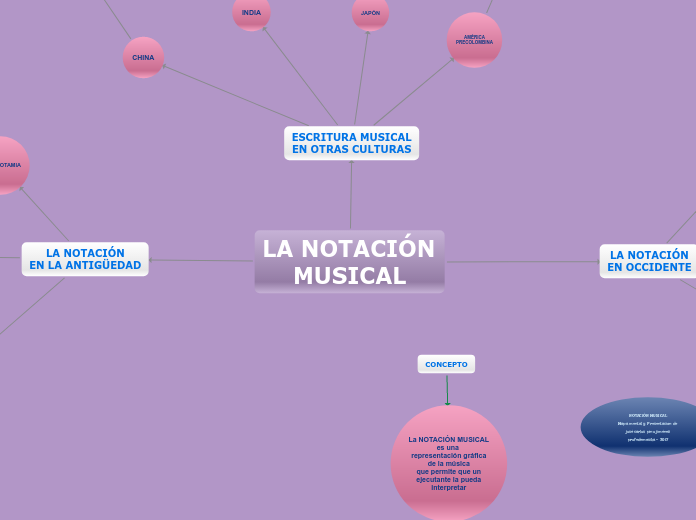FORMACIÓN DA LINGUA GALEGA
To name your story, you have to think about the overall message and what you want your audience to understand from the story. Also, make it relevant and easy to remember.
FORMACIÓN HISTÓRICA DO LÉXICO GALEGO
The ending of a story is essential. We all know that if the ending is weak, what happened before loses its importance. So make it unpredictable, but fair. A resolved ending answers all the questions and ties up any loose threads from the plot.
Léxico galego procede latín vulgar. Non todas as palabras sufriron a mesma evolución xa que non foron introducidas na mesma época.
SEMICULTISMOS
miraculum > milagre
delicatum > delicado
CULTISMOS
abstracción, opción
primaria
multitude, altraísmo
partícula, monóculo
popular, acuoso, estatal
escena, dolor
lácteo
cuaternario
audiencia
pluviómetro, clave
PALABRAS PATRIMONIAIS
clamare >chamar
aurum > ouro
tenere > ter
factum > feito
vedere > ver
populum >pobo
FORMACIÓN HISTÓRICA DA LINGUA GALEGA
SUPERESTRATO
Influencia exercida por unha lingua invasora sobre unha lingua autóctona
ÁRABE
This is the closure section of the story.
See examples of possible outcomes below:
- all problems have been solved
- it's clear how each one of your characters ends up
- your main character is transformed by the challenge
Oxalá, ala!
A Mezquita
Arroz, alforxa, aceite
Algoritmo, alquimia, álxebra
Alcalde
Alicate, albanel
Try answering these questions in order for you to come up with a closure:
- Have all problems been solved?
- Is it clear what happens with all your characters in the story?
- Has the challenged transformed your main character?
- How do the characters feel in the end?
Cenoria
Try answering these questions to come up with a closure:
- Have all the problems been solved?
- Is there a clear picture of what happens with each character in the story?
- Has the challenge transformed your main character?
- How do the characters feel in the end?
XERMÁNICO
This is the moment when the main character surpasses the last obstacle and finally faces their greatest challenge.
The climax usually follows one of these patterns:
- realization
- resolution
- choice
Type in your answer.
Guerra, frecha, tregua, gañar, espía, bramar
Baltat, Damil, Taramundi, Rairiz, Allariz
Alfonso, Carlos, Ramón
ADSTRATO
The middle of the story is where you add layers of complications that will lead to the end. Reveal more about the character's journey. Did their personality go through changes? How did they overcome the challenges? And as you build up the story’s central conflict, make it more personal to that character. Also, from the middle act, you have to lead into the final act.
Recíproca influencia entre linguas veciñas ou que conviven nun mesmo territorio
influencia do castelán sobre o galego e viceversa
SUBSTRATO
In the beginning of the story (or the exposition), you will need to introduce the setting and characters. You might also want to introduce the main conflict. This part of the story is important because it gives the reader necessary background information and maybe even a first insight into a character’s personality.
Influencia dunha lingua nativa sobre unha lingua implantada no mesmo territorio
PRERROMANO
Characters are essential to a good story. Usually, the protagonist(s) is/are the most affected by the plot. Introduce a character by focusing on their actions, interests, and occupation, as the physical appearance doesn't make a difference in most cases.
carro, cervexa, cabalo
Add other qualities/attributes of the character.
beizo, berce, burato
What is your character's main goal?
fight Evilfind lovedefeat his/her enemyrule the worldmake friendstime travelmake an awesome discoveryOther
lama, toxo, veiga
Which traits best describe the character's personality? Choose more if necessary:
introvertedloyalkindindependentquick-thinkingadventuresomeidealisticsweet-naturedcalmrisk-takercreativewittystrictfussyweirdclumsyharshaggressivecarelessclingingcowardlycrueldeceitfulimpulsiveOther
carbarllo, carrasca
Choose the type of your chacter:
Protagonist (main character)Antagonist (main character's opponent)Flat (stereotypical character)Round (his/ her personality develops throughout the story)Static (doesn't evolve as a person throughout the story)Dynamic (dramatical change in personality)Confidant (the main character trusts him/ her)Foil (contrasting character who enhances the personality of another character)Other
